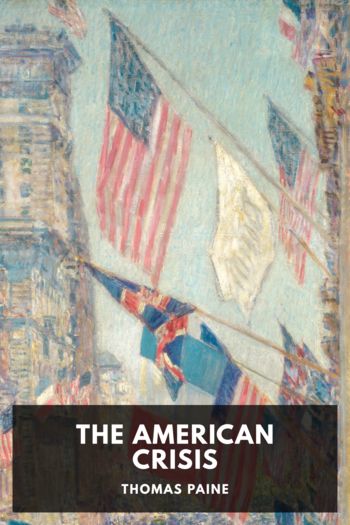Fateful Lightning: A New History of the Civil War & Reconstruction, Allen Guelzo [best thriller novels of all time txt] 📗

- Author: Allen Guelzo
Book online «Fateful Lightning: A New History of the Civil War & Reconstruction, Allen Guelzo [best thriller novels of all time txt] 📗». Author Allen Guelzo
If it looked as though William Tecumseh Sherman was taking away with one hand what he had just given with the other, he was a model of pristine consistency compared to the new president, Andrew Johnson. The selection of Andrew Johnson as Lincoln’s running mate in the 1864 election was a baffling proposition even to people who knew both of them. Johnson was an old-line Tennessee Democrat who worshipped at the political shrine of the man Lincoln loathed, Andrew Jackson. But like Jackson, his saving grace was his fervent Unionism. Appointed military governor of Tennessee in 1862, Johnson had meted out a harsh justice to rebel planters and promised black Tennesseans in 1864 that he would “be your Moses, and lead you through the Red Sea of war and bondage to a fairer future of liberty and peace.” It was public commentary of that sort, along with Lincoln’s anxiety to demonstrate how Southern yeomen were turning their backs on the Confederacy, that earned Johnson his place on the National Union Ticket. Lincoln overlooked the fact that Johnson’s Unionism was really an expression of his yeoman’s suspicion of the planter class, not of sympathy for black slaves. “Damn the Negroes,” Johnson told one Tennessee correspondent, “I am fighting these traitorous aristocrats, their masters”; even Johnson’s private secretary, William G. Moore, admitted that Johnson “exhibited a morbid distress and feeling against the negroes.”51
Initially, the Radical Republicans made the same mistake about Johnson, largely because a good many of them shared Johnson’s animus toward the South’s “traitorous aristocrats.” On the afternoon of the day Lincoln died, a delegation of Radicals headed by Ben Wade (as the chair of the Joint Committee on the Conduct of the War) called on Johnson to take his political temperature, and Johnson enthusiastically assured them that they could “judge of my policy by my past. … Treason is a crime; and crime must be punished. … Treason must be made infamous and traitors must be impoverished.” This sounded, to the Radicals, like an endorsement for land redistribution, raising the bar of Reconstruction in the South, and recruiting the freed slaves to fashion a new political order. “Johnson, we have faith in you,” boomed Wade. “By the gods, there will be no trouble now in running the government.” And Johnson fortified Wade’s confidence two days later by suggesting that a good example might be set to traitors by hanging a good baker’s dozen of the Confederate leaders. Zebulon Vance and Joseph E. Brown, the Confederate governors of North Carolina and Georgia, were arrested; Jefferson Davis was finally captured by Federal cavalry near Irwinville, Georgia, on May 10, and imprisoned in Fortress Monroe. Although Booth was tracked down by the army and shot to death in a barn in northern Virginia on April 26, scores of suspects were arrested by Stanton and eight were put on trial before a hard-jawed military tribunal. Four of them were hanged on July 7.52
And yet, for all the appearances of grim-faced radicalism in Johnson, Wade and his colleagues could not have been more wrong about the new president. Not only was Johnson’s support for Reconstruction limited to what it could do for poor whites rather than freed blacks, but Johnson’s Democratic political instincts set him against almost every other part of the Republican agenda, including tariffs, the new national banking system, the use of paper money rather than specie by the federal government, and federal investment in internal improvements. “The war of finance is the next war we have to fight,” Johnson prophesied, and that included” prohibitory tariffs” and “the manufacturers and men of capital in the Eastern States”—in other words, precisely the people Lincoln and the Republicans had championed. “The aristocracy based on $3,000,000,000 of property in slaves … has disappeared,” Johnson rejoiced,
but an aristocracy, based on over $2,500,000,000 of national securities, has arisen in the Northern states, to assume that political control which the consolidation of great financial and political interest formerly gave to the slave oligarchy. … We have all read history, and is it not certain, that of all aristocracies mere wealth is the most odious, rapacious, and tyrannical? It goes for the last dollar the poor helpless have got; and with such a vast machine as this government under its control, that dollar will be fetched. It is an aristocracy that can see in the people only a prey for extortion.53
If Johnson had a solution to the problems posed by the freedpeople, it was bounded on one side by his refusal to grant former slaves any kind of political equality with white men, and on the other by Johnson’s conclusion that the best conclusion to the story of black people in America would be a fast ship to Africa. “There is a great problem before us,” Johnson informed a black regiment, drawn up for his review, on October 10, 1865, “whether this race can be incorporated and mixed with the people of the United States … If it should be so that the two races cannot agree and live in peace and prosperity,” then “they are to be taken to their land of inheritance and promise, for such a one is before them.”54
Just how deeply the Radicals had misjudged Johnson became apparent when Johnson issued his own plan for a presidential Reconstruction on May 29, 1865. It was, for all intents and purposes, what Sherman had offered Joe Johnston, only





Comments (0)